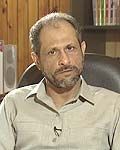Sudan says willing to discuss boosting African force
Oct 19, 2006 (KHARTOUMA) — The Sudanese government, which opposes deploying a U.N. peacekeeping force in the war-ravaged Darfur region, is willing to discuss the world body providing support for the African Union’s troubled Darfur peacekeeper force, a senior government official said Thursday.

Khartoum opposes a U.N. Security Council resolution to replace the 7,000- strong AU force with some 20,000 U.N. peacekeepers, describing it as a neocolonial move.
Instead, the Sudanese government appears to be pushing for a stronger AU force to counter Western accusations it is letting the situation deteriorate in Darfur, where aid groups say the humanitarian crisis is edging toward an all- time worst.
“We are not averse to the idea of discussing what kind of support the AU can receive in terms of troops, material and funding from the U.N.” said senior adviser to the president Ghazi Saladdine after meeting with Andrew Natsios, the U.S. special envoy to Sudan.
“Ultimately, we want to have an effective force in Darfur,” said Saladdine, one of the hard-liners of the ruling National Congress Party.
Natsios, due to leave Khartoum on Friday, held talks with several high- ranking officials during his one-week trip but did not meet with President Omar al-Bashir. He did not give any comment to the media.
Several Western officials, including Jan Pronk, head of the U.N. mission to Sudan, view a boosted AU mission as one way to overcome the diplomatic deadlock on how to solve the Darfur crisis.
Steps to improve the mission’s efficiency have already been taken, and about 150 U.N. military and logistical advisers are due in Darfur in the coming week to reinforce the African force, said Sam Ibok, the AU’s chief negotiator for Sudan.
The AU has also planned to send several thousand more troops to the wartorn region, but has been struggling for weeks to fund this move. Chronic lack of cash has left some soldiers without pay since August, while some patrols can not go out because of the lack of fuel.
Ibok said, however, that at least 1,200 new troops from Rwanda and Nigeria would arrive in Darfur by the end of October.
Ibok said the AU would soon solve the problem of its unpaid soldiers, and had received pledges from the Arab League and other international backers for more the US$50 million.
“We currently have enough funds to continue the mission until the end of the year,” he said by telephone.
Initially due to finish in September, the AU has been prolonged until the end of the year, and many observers say it should continue beyond that date to avoid a dangerous security vacuum.
Ibok said a possible extension would be discussed during an African Union summit in November and would depend on international support.
“We are taking it one step at a time,” said Ibok.
The talks come amid increased fighting in northern Darfur, where 350,000 people are deprived of humanitarian support because the violence makes it too dangerous for aid workers to operate.
A U.N. assessment released Thursday found that adequate access to food for those living in displacement camps in Darfur declined from 36% last year to 14% in 2006.
A new coalition of rebels backed by forces from neighboring Chad recently inflicted severe losses on the Sudanese army, which is now massing troops and militia in what many fear could become major fighting after the Muslim holy month of Ramadan ends next week.
The northern rebels reject a peace agreement signed in May between one faction and the government, but have recently begun sending signals they could accept to re-negotiate the peace deal on steeper terms.
A senior military official bluntly rebuked comments by Pronk about the recent clashes.
Pronk’s statements sent the wrong message about “minor security breaches,” Gen. Mohammed al-Dabbi, the president’s military adviser for Darfur, was quoted as saying by the official Sudan Media Center.
Such comments could “push those who did not sign the peace agreement to continue their positions and their stubbornness,” the general said.
